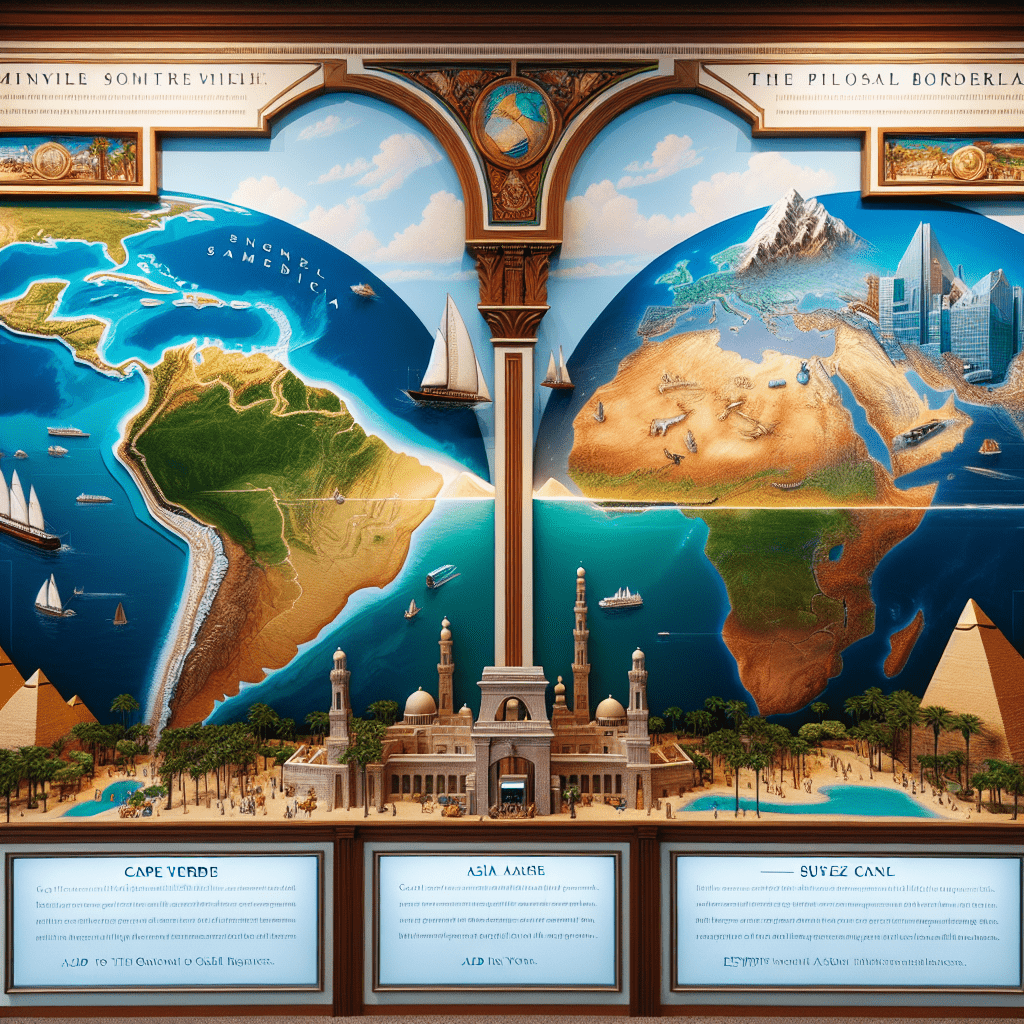Cape Verde Vs Egypt: An Overview of the Island Nation and North African Powerhouse
Cape Verde, also known as Cabo Verde, and Egypt are two African nations with diverse cultural heritages, economic profiles, and geopolitical significance. Both countries carry unique characteristics—Cape Verde with its archipelagic identity and ties to maritime culture, and Egypt with its ancient civilization roots and pivotal role in both the Arab world and larger African continent. Comparing these nations involves looking at various aspects such as geography, demographics, economy, tourism, and their distinct regional roles.
Geographical Contrasts: The Island Archipelago Vs The Desert Land
Cape Verde’s Archipelagic Geography:
The Republic of Cape Verde is an island country consisting of an archipelago of 10 volcanic islands in the central Atlantic Ocean. They are located about 570 kilometers west of Dakar, Senegal. Despite its size and relatively small area totaling around 4,033 square kilometers, its location has made it strategically significant historically as a refueling station during transatlantic trade.
Egypt’s Varied Landscape:
Egypt, located in the northeast corner of Africa, has a land area over 1 million square kilometers. It is known for its desert landscapes, especially those that encompass the Sahara and Sinai Peninsula, alongside the fertile Nile Valley where most of its population resides. Egypt’s Suez Canal is a vital international navigation channel allowing ships to pass from the Mediterranean to the Indian Ocean without having to circumnavigate Africa via the Cape of Good Hope.
Population Dynamics: Island Inhabitants vs Urban Crowds
Demographics of Cape Verde:
With a population exceeding half a million people, Cape Verde is known for its Creole Portuguese-African culture, which reflects in its language, music, and customs. The capital city of Praia hosts a large portion of the population. Emigration rates are high, leading to substantial Cape Verdean communities abroad.
Population Density in Egypt:
In contrast, Egypt is the third most populous country on the African continent with a headcount well over 100 million inhabitants. A vast majority live near the banks of the Nile River in cities like Cairo, which is one of the largest cities in Africa. Egyptians are mostly Arab-speaking Muslims with a diverse backdrop incorporating age-old traditions along with a fast-paced societal dynamic influenced by modern-times globalization.
Economic Insights: Tourism & Overseas Development vs Ancient Relics & Modern Industry
Cape Verde’s Economic Overview:
The economy of Cape Verde is service-oriented, with commerce, transport, tourism, and public services accounting for most of its GDP. Being a relative stable democracy has aided in encouraging foreign investment. The diaspora also contributes positively via remittances sent back home. However, limited natural resources and the need for agricultural imports make food security an ongoing concern.
Driving Forces in Egypt’s Economy:
Egypt’s economy is one of the most varied in the Middle East with sectors such as agriculture, media production, manufacturing goods like textiles and foodstuff being quite significant alongside tourism. The latter profits from countless visitors who flock annually to sites from antiquity including Pyramids of Giza, Luxor’s Karnak Temple and the Valley of the Kings. Additionally, oil and gas exports are an important revenue source while recently discovered off-shore gas fields promise to enhance that sector further.
Touristic Appeal: Warm Beaches and Cultural Festivity Vs Timeless Monuments and Red Sea Resorts
Sights and Sounds of Cape Verdean Tourism:
Travelers frequent Cape Verde for mellow beaches such as those on Sal and Boa Vista islands featuring windsurfing and marine life watching opportunities. Cultural attractions include Morna music – emotionally intense songs involving existential poetry set to music expressing longing or philosophical musings.
Egypt’s Tourist Destinations:
Egypt’s immeasurable historical magnificence attracts perpetually large numbers to archaeological digs and ancient sites dispersing its timeless mystique onto contemporary visitors. Resort destinations like Sharm El Sheikh provide Red Sea snorkeling excursions including scuba diving among coral reefs.
Respective Roles within Regional Politics
While Cape Verde is regionally recognized for its stable political system and advocacy for democratic principles in international forums such as the African Union (AU), it does not carry significant weight geopolitically.
As opposed to this balance, Egypt maintains considerable leverage within Arab and African politics due to geographic location straddling between these two worlds as well as historical leadership roles from periods including the Nasser era until present times. The country exercises visible influence in Middle East dynamics frequently illustrated by active participation in negotiations regarding warring neighbors or disproportionate scale water rights debates generated from Nile River concerns.

